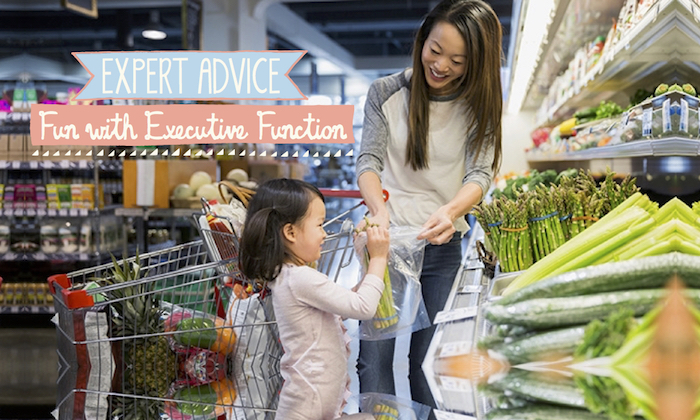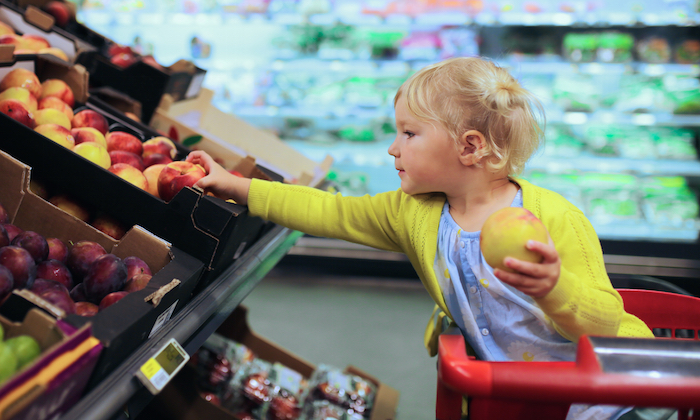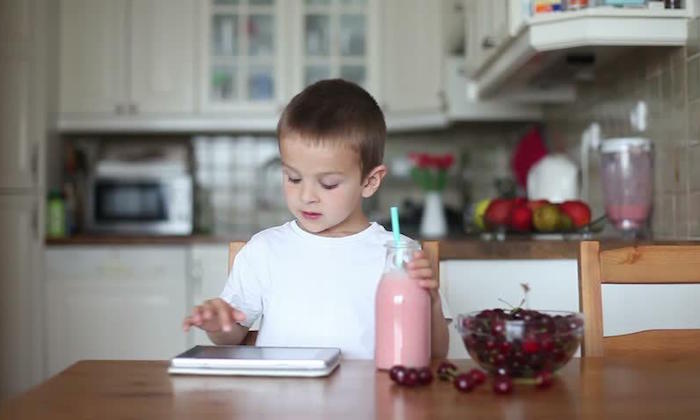
Are you familiar with Executive Function, mama? Recent research has shown its prominent role in children’s success and happiness; here’s how to promote it in your little one!
Executive Function skills are a set of mental skills that help us to stay calm, accomplish task and think creatively. They are of vital importance to children’s success and happiness.

We recently caught up with May Chan, Programme Director of Leapfrogs, on her experience as a mother and grandmother, her 20 years as an early childhood Montessori Directress, and her current work as a Special Educational Therapist for children with learning challenges. Below, May discusses how the simplest of tasks involving your child can empower them with tools for their own lifetime learning journey.
Tell us more about how you discovered Executive Functioning skills?
Executive functioning skills were unheard of during my kids’ younger days. As an educator for the past 20 plus years, it was only recently in the last 10 years or so that I’ve begun to see more research and resources highlighting this critical skill. This made me reflect back on all the deliberate and accidental things I did as a mother, teacher, principal and now therapist, and what role I played in enhancing their executive function skills.
My little grandson who is now 14 months is a wonderful reminder of how little kids connect the “dots” very much on their own. Children are naturally born with potential to develop executive function skills in an environment that encourages the growth of such skills. The benefits are lifelong.
Exactly what are executive function skills?
Executive function skills are a set of core skills that are critical in helping a child plan, remember, prioritize, stay organized, control his impulses, and pay attention to tasks of all sorts — from those required in school to those needed on the playground.

Core Executive Function skills and what they look like in children:
Working Memory helps us to hold pieces of information and mentally figure things out, reason, plan and solve problems. The ability to hold on to and mentally work from just a few bits of information to lots of pieces of information is dependent on a child’s stage of development.
Inhibitory Control requires attention that allows us to hold information mentally, make and follow through on plans. Our inhibitory control works hand in hand with our working memory to block out internal and external distractions in order to maintain focus on a goal or carry out a plan, set priorities and resist impulsive actions or responses.
Mental Flexibility is important for us to think of new possibilities and alternative ways to problem solve. Children with mental flexibility are usually happier as they have the abilities to roll with punches, get along better with others, and recover from setbacks.
What are some ways to develop executive function skills?
What I really like are simple activities like grocery shopping and helping out with household chores; both are great ways to boost executive function skills such as self-control and independence in children.
The supermarket provides a wonderful growth-promoting environment where children can practice necessary skills in a real-life daily situation. They learn about making choices, controlling their impulses and feelings, planning and working with others.

Do you have any tips on how to go about this before a grocery trip?
Before the trip:
- Get your child involved from the beginning from budgeting, to making a list, to being responsible for simple things they have to pick up.
- Plan a meal: Looking for recipe for a favorite dish can be spark your child’s interest in reading and finding necessary ingredients for the dish.
- Involve your child in making a shopping list for the necessary ingredients to expose your child to planning, help them form connections between the grocery items, and the build vocabulary related to shopping.
- Prepare your child by explaining what to expect, e.g. looking for items for the meal and setting rules such as ‘we are only buying things we need’.
While you shop:
- Involve your child and allow them get close to items in the store to promote the use of senses to experience the grocery store.
- Observe and listen attentively to what your child is trying to communicate so that you can share about what you and your child see, smell, feel, and hear.
- Draw your child’s attention to how the different items in the supermarkets are packed and organized for display.
- Allow your child to help in picking up grocery items needed for preparing the meal. This will help to provide the sensory input that will expand your child’s vocabulary and understanding.
- Stick with the list, which will help your child understand that a list is an important tool which guides us and helps us to remember.
- Build awareness of the environmental, such as numbers and words in the different aisles, how things are classified (cereals are on one shelf, milk is somewhere else). This stimulates early literacy and math skills
- Demonstrate comparing skills when selecting and deciding which items to buy.
- Encourage your child to put the items on the checkout counter following certain order e.g. all fresh fruit first, then …

When you get home…
- Let your child help with sorting and putting away the groceries. This will help to understand how things are organized in the home by talking about where the different items should go.
- Follow through with the favorite meal preparation plan and share about the experience.
Is that all it takes?
The benefits of engaging your children in daily activities are plentiful and immeasurable. I love that my little grandson is already learning to play his part. Children become aware of themselves and others through meaningful interactions. Here’s a whole list of benefits:
- Great feeling that they are doing their parts for the family
- Spending quality time and learning from parents or other caretakers who are their role models
- Building awareness of the environment and people in the community
- Beginning to learn about being caring and supportive
- Shared experience opens the lines of communication
- Understanding the process of daily events in the family
- Learning about self-control and problem solving skills
- Exercising appropriate social behavior
- Vocabulary and experiences that come in handy for more learning to happen
Any other advice that comes to your mind about executive function skills?
Yes, be aware that every child is different and it is important to recognize that children’s executive function and self- regulation skills grow at different paces.
Activities should be adapted to match the skills of each child developmental stages and needs. You may need to provide more support for younger children in learning rules and structures, while older children can be more independent. Ultimately, it is important to reduce the support you provide so that children can manage themselves in their own learning and self-regulation instead relying on adult regulation. And of course, have fun together!
![]()
Thank you, May! To find out more about Leapfrogs, visit their Facebook page or give them a call, mama!
Leapfrogs, 144 Bukit Timah Road, Singapore 229844, Tel: (+65) 6733 1992, www.leap-frogs.com






 View All
View All





 View All
View All











 View All
View All






